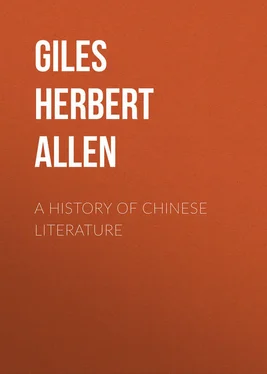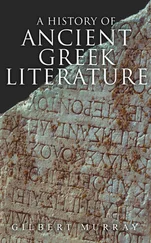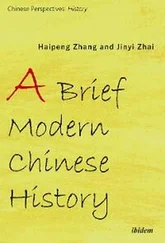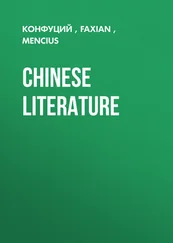Herbert Giles - A History of Chinese Literature
Здесь есть возможность читать онлайн «Herbert Giles - A History of Chinese Literature» — ознакомительный отрывок электронной книги совершенно бесплатно, а после прочтения отрывка купить полную версию. В некоторых случаях можно слушать аудио, скачать через торрент в формате fb2 и присутствует краткое содержание. Жанр: Критика, foreign_antique, foreign_prose, на английском языке. Описание произведения, (предисловие) а так же отзывы посетителей доступны на портале библиотеки ЛибКат.
- Название:A History of Chinese Literature
- Автор:
- Жанр:
- Год:неизвестен
- ISBN:нет данных
- Рейтинг книги:5 / 5. Голосов: 1
-
Избранное:Добавить в избранное
- Отзывы:
-
Ваша оценка:
- 100
- 1
- 2
- 3
- 4
- 5
A History of Chinese Literature: краткое содержание, описание и аннотация
Предлагаем к чтению аннотацию, описание, краткое содержание или предисловие (зависит от того, что написал сам автор книги «A History of Chinese Literature»). Если вы не нашли необходимую информацию о книге — напишите в комментариях, мы постараемся отыскать её.
A History of Chinese Literature — читать онлайн ознакомительный отрывок
Ниже представлен текст книги, разбитый по страницам. Система сохранения места последней прочитанной страницы, позволяет с удобством читать онлайн бесплатно книгу «A History of Chinese Literature», без необходимости каждый раз заново искать на чём Вы остановились. Поставьте закладку, и сможете в любой момент перейти на страницу, на которой закончили чтение.
Интервал:
Закладка:
Huai-nan Tzŭ begins with a lengthy disquisition “On the Nature of Tao,” in which, as elsewhere, he deals with the sayings of Lao Tzŭ after the fashion of Han Fei Tzŭ. Thus Lao Tzŭ said, “If you do not quarrel, no one on earth will be able to quarrel with you.” To this Huai-nan Tzŭ adds, that when a certain ruler was besieging an enemy’s town, a large part of the wall fell down; whereupon the former gave orders to beat a retreat at once. “For,” said he in reply to the remonstrances of his officers, “a gentleman never hits a man who is down. Let them rebuild their wall, and then we will renew the attack.” This noble behaviour so delighted the enemy that they tendered allegiance on the spot.
Lao Tzŭ said, “Do not value the man, value his abilities.” Whereupon Huai-nan Tzŭ tells a story of a general of the Ch’u State who was fond of surrounding himself with men of ability, and once even went so far as to engage a man who represented himself as a master-thief. His retainers were aghast; but shortly afterwards their State was attacked by the Ch’i State, and then, when fortune was adverse and all was on the point of being lost, the master-thief begged to be allowed to try his skill. He went by night into the enemy’s camp, and stole their general’s bed-curtain. This was returned next morning with a message that it had been found by one of the soldiers who was gathering fuel. The same night our master-thief stole the general’s pillow, which was restored with a similar message; and the following night he stole the long pin used to secure the hair. “Good heavens!” cried the general at a council of war, “they will have my head next.” Upon which the army of the Ch’i State was withdrawn.
Among passages of general interest the following may well be quoted: —
“Once when the Duke of Lu-yang was at war with the Han State, and sunset drew near while a battle was still fiercely raging, the Duke held up his spear, and shook it at the sun, which forthwith went back three zodiacal signs.”
The end of this philosopher was a tragic one. He seems to have mixed himself up in some treasonable enterprise, and was driven to commit suicide. Tradition, however, says that he positively discovered the elixir of immortality, and that after drinking of it he rose up to heaven in broad daylight. Also that, in his excitement, he dropped the vessel which had contained this elixir into his courtyard, and that his dogs and poultry sipped up the dregs, and immediately sailed up to heaven after him!
BOOK THE SECOND
THE HAN DYNASTY (B.C. 200 – A.D. 200)
CHAPTER I
THE “FIRST EMPEROR” – THE BURNING OF THE BOOKS – MISCELLANEOUS WRITERS
Never has the literature of any country been more closely bound up with the national history than was that of China at the beginning of the period upon which we are now about to enter.
The feudal spirit had long since declined, and the bond between suzerain and vassal had grown weaker and weaker until at length it had ceased to exist. Then came the opportunity and the man. The ruler of the powerful State of Ch’in, after gradually vanquishing and absorbing such of the other rival States as had not already been swallowed up by his own State, found himself in B.C. 221 master of the whole of China, and forthwith proclaimed himself its Emperor. The Chou dynasty, with its eight hundred years of sway, was a thing of the past, and the whole fabric of feudalism melted easily away.
This catastrophe was by no means unexpected. Some forty years previously a politician, named Su Tai, was one day advising the King of Chao to put an end to his ceaseless hostilities with the Yen State. “This morning,” said he, “when crossing the river, I saw a mussel open its shell to sun itself. Immediately an oyster-catcher thrust in his bill to eat the mussel, but the latter promptly closed its shell and held the bird fast. ‘If it doesn’t rain to-day or to-morrow,’ cried the oyster-catcher, ‘there will be a dead mussel.’ ‘And if you don’t get out of this by to-day or to-morrow,’ retorted the mussel, ‘there will be a dead oyster-catcher.’ Meanwhile up came a fisherman and carried off both of them. I fear lest the Ch’in State should be our fisherman.”
LI SSŬ
The new Emperor was in many senses a great man, and civilisation made considerable advances during his short reign. But a single decree has branded his name with infamy, to last so long as the Chinese remain a lettered people. In B.C. 13, a trusted Minister, named Li Ssŭ, is said to have suggested an extraordinary plan, by which the claims of antiquity were to be for ever blotted out and history was to begin again with the ruling monarch, thenceforward to be famous as the First Emperor. All existing literature was to be destroyed, with the exception only of works relating to agriculture, medicine, and divination; and a penalty of branding and four years’ work on the Great Wall, then in process of building, was enacted against all who refused to surrender their books for destruction. This plan was carried out with considerable vigour. Many valuable works perished; and the Confucian Canon would have been irretrievably lost but for the devotion of scholars, who at considerable risk concealed the tablets by which they set such store, and thus made possible the discoveries of the following century and the restoration of the sacred text. So many, indeed, of the literati are said to have been put to death for disobedience that melons actually grew in winter on the spot beneath which their bodies were buried.
Li Ssŭ was a scholar himself, and the reputed inventor of the script known as the Lesser Seal, which was in vogue for several centuries. The following is from a memorial of his against the proscription of nobles and others from rival States: —
“As broad acres yield large crops, so for a nation to be great there should be a great population; and for soldiers to be daring their generals should be brave. Not a single clod was added to T’ai-shan in vain: hence the huge mountain we now behold. The merest streamlet is received into the bosom of Ocean: hence the Ocean’s unfathomable expanse. And wise and virtuous is the ruler who scorns not the masses below. For him, no boundaries of realm, no distinctions of nationality exist. The four seasons enrich him; the Gods bless him; and, like our rulers of old, no man’s hand is against him.”
The First Emperor died in B.C. 210, 6 6 An account of the mausoleum built to receive his remains will be found in Chapter iii. of this Book.
and his feeble son, the Second Emperor, was put to death in 207, thus bringing their line to an end. The vacant throne was won by a quondam beadle, who established the glorious House of Han, in memory of which Chinese of the present day, chiefly in the north, are still proud to call themselves Sons of Han.
So soon as the empire settled down to comparative peace, a mighty effort was made to undo at least some of the mischief sustained by the national literature. An extra impetus was given to this movement by the fact that under the First Emperor, if we can believe tradition, the materials of writing had undergone a radical change. A general, named Mêng T’ien, added to the triumphs of the sword the invention of the camel’s-hair brush, which the Chinese use as a pen. The clumsy bamboo tablet and stylus were discarded, and strips of cloth or silk came into general use, and were so employed until the first century A.D., when paper was invented by Ts’ai Lun. Some say that brickdust and water did duty at first for ink. However that may be, the form of the written character underwent a corresponding change to suit the materials employed.
Meanwhile, books were brought out of their hiding-places, and scholars like K’ung An-kuo, a descendant of Confucius in the twelfth degree, set to work to restore the lost classics. He deciphered the text of the Book of History, which had been discovered when pulling down the old house where Confucius once lived, and transcribed large portions of it from the ancient into the later script. He also wrote a commentary on the Analects and another on the Filial Piety Classic.
Читать дальшеИнтервал:
Закладка:
Похожие книги на «A History of Chinese Literature»
Представляем Вашему вниманию похожие книги на «A History of Chinese Literature» списком для выбора. Мы отобрали схожую по названию и смыслу литературу в надежде предоставить читателям больше вариантов отыскать новые, интересные, ещё непрочитанные произведения.
Обсуждение, отзывы о книге «A History of Chinese Literature» и просто собственные мнения читателей. Оставьте ваши комментарии, напишите, что Вы думаете о произведении, его смысле или главных героях. Укажите что конкретно понравилось, а что нет, и почему Вы так считаете.












